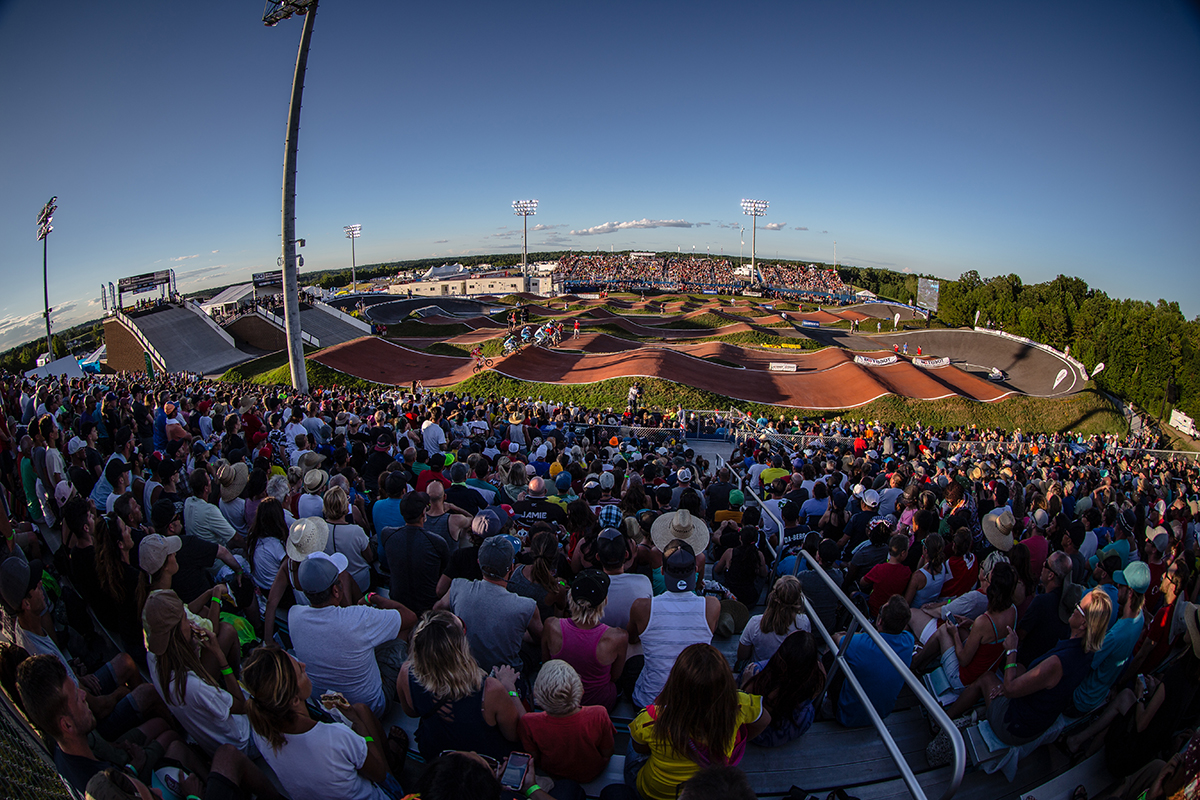

It goes without saying everyone wants to put on a successful sports event. Yet, no matter what sport you’re talking about, no matter what size the event is and no matter where it takes place, every event starts on paper – or more accurately, in electronic form – as a request for proposal, or RFP. If everything works out, the city you’re interested in finds it an enticing piece of business and submits a bid.
Since so much hinges on that RFP, it’s important to know how to craft a good one. While every sport is different, their needs are usually similar: an attractive, easy-to-reach destination, a venue (or multiple venues) to host the competition and enough inventory of sleeping rooms for participants. Outside of that, the event may have other needs, such as meeting rooms, trade show space, volunteer support, entertainment and other factors which may vary according to the event itself.
No matter what your event needs, though, you want to make a good first impression on potential host cities. Here is how to get the process off to a good start:
Supply All the Information
A city should be able to look at your proposal and see right away if it’s something that will be a good fit for them.
“You want to give a snapshot of who you are and what you need,” said John Gibbons, Executive Director of the Rhode Island Sports Commission, Providence Warwick Convention & Visitors Bureau: “Any seasoned professional wants to see as much information up front as possible.”
A good RFP will include information in various categories:

- Name of Event
- Type of Sport
- Number of Athletes
- Any Relevant Demographic Information (for example, a youth soccer group, a senior tennis sectional championship, etc.): State whether athletes will most likely be traveling alone, accompanied by family members, etc.
- Referee Needs: Indicate whether you will be traveling with officials or whether you expect local sports commissions to point you to clubs and organizations that can supply you with officials
- The Date(s) or Date Window Desired
The Venue
- Type of Competition Venue Needed: Soccer fields, disc golf course, a natatorium, ice hockey rinks, etc., including any specific size, surface or lighting requests.
- Will concessions or catering be needed?
- Spectators: How many do you expect to attend the event each day?
- Expo or Trade Show Space: How much space will be necessary, how many vendors you expect, the load-in/load-out pattern.
- Ancillary Space: A convention center or other large space for opening and closing ceremonies, smaller meeting rooms for officials, etc.
- If additional venues are needed, what is the preferred proximity?
Accommodations
- Room Nights: How many room nights will be used? What is the move-in and move-out pattern? Is this an elimination tournament where the number of room nights needed will go down over the course of the event? If so, by how much?
- What types of rooms are preferred? And are you looking for rooms with fold-out couches because families are traveling together and need more sleeping areas?
- Are you looking for hotels with pools, health facilities, a free breakfast, complimentary Wi-Fi, etc.?
- How far is the event owner willing to site an event from hotel accommodations?
- Is there a preferred proximity to the nearest airport?

Additional Services
If your event will require the services of any specific onsite vendors, state that in your RFP. For example, a color guard or a D.J. might be needed. Will A/V equipment be necessary? Will there be a shuttle bus service provided? How about catering? Will you need volunteers? If so, how many and for which duties? Try to give the most complete overview of your event for any prospective city.
Historical Information
Locations from Previous Years: This should include room pickup, food and beverage information, any economic impact figures and more.
Financial Needs
Some events charge a bid fee. If yours does (or does not), state that up front in your RFP. No city wants to be surprised.
In all aspects of the RFP, details are always appreciated, according to Bob Murdock, Director of National Accounts and Sports Marketing with the Connecticut Convention & Sports Bureau.
“Most sports commissions and convention and visitors bureaus are looking for the same thing – overnight hotel stays,” Murdock notes. “That is important to us, so the more information you can provide, the better off you are. Some people will say they need 2,000 room nights, but, it’s really more valuable to us if you break it down: How many rooms do you need each night, and what kinds of rooms do you need? It allows us to see right away if we’re going to be able to handle the event.”
The city is going to be evaluating the RFP based on a number of criteria. Once it has been determined whether the event is a good potential match for a destination (meaning it has the dates open, the necessary venues and can accommodate the hotel space), the city will take a closer look.
Having a pre-existing relationship with the event organizer, say the destination executives, is a huge plus.
“Hopefully you have a rapport with whoever is sending you the RFP,” said John Gibbons. “People typically do not blanket the country with RFPs; they look for the places they’re familiar with already. I would rather bid on an event that was from someone I know.”
Event owners trying to find a new home for their tournament aren’t out of luck, though, he added. The historical information will be an essential guideline.
“I want to know where an event has been held in the last three to five years. If I have that information, I’ll just pick up the phone and call someone to find out how that event has been to work with in the past. In this industry, we’re willing to help each other because groups are not necessarily going to stay in the same host cities year after year.”
Assuming you’ve been able to check all the boxes so far, what else can you do to try to keep your RFP headed on a fast-track for the bid process? Several pieces of advice rise to the top:
Be Flexible with Dates: Does your event have to be held over a specific week or weekend, or do you have leeway in your booking arrangements? If a city is already busy with other commitments in your desired timeframe–big conventions, another sports event or something else that takes up a lot of space – your ability to move a few days or a few weeks can make an enormous difference in the attractiveness of your event to the destination.
“If your dates are flexible, you’ll have a better chance,” said Bob Murdock. “We may not be able to give someone exactly what they want, but we may have space the following week or later in the month.”
Gibbons can cite a prime example in Rhode Island. “Up here over the Memorial Day weekend, you’re not going to find anything. That is graduation weekend for Brown University and every hotel room is booked; there are also events going on at the university and in the hotels around the area.”
Additionally, room rates that weekend are often higher than the average tournament-goer would want to pay, even if there were to be space available. The event owner who can select another weekend will find better rates and a more plentiful supply of rooms in a variety of properties.
To echo Gibbon’s point, New England states welcome tourists during holiday weekends, which can present a challenge relative to room rates and availability. As a positive, this can be a great time to think outside the box and consider siting an event to a location that may offer lower rates during that particular season.
Be Realistic: Be honest about what your tournament has accomplished in the past. While it’s tempting to put the best spin on an event by being optimistic about the number of hotel rooms you expect to book, overpromising or fabricating information is an enormous mistake, according to Murdock.
“We start talking to planners – people we’ve never worked with about their events – and I’ll call my friend in another state and say, ‘I saw you hosted them. How did it go? Did they deliver what they said they would?’ You have to understand that as colleagues, we’re going to talk among ourselves. You have to do your due diligence on both sides of the table.”
“We network all the time,” said John Gibbons. “We don’t go blindly into things. It’s better for everyone to be professional and to be honest.”
Something else to be up-front about is any information about difficulties you’ve encountered in the past. When your event was at another destination, was there something that didn’t work – or something that needed improvement? If so, talk to the sports commission or CVB and ask for suggestions.
Understand Your Priorities: It’s likely you already have a three-tiered system of what you want going into the RFP process. Make sure you keep it up to date by reviewing and refining what you need, what you want and what would be nice to have. Since all destinations are different, your wish list will need to be adjusted each time you move to a new city.
“I sometimes have to say, ‘We can’t give you X but how about Y instead?’” said Bob Murdock. “I hate to say no, but if we can’t do what someone wants, we can try to do something different.”
Look for a Good Fit: There are a lot of great destinations out there, however, your tournament might not be a good match for the city or region you want – no matter how much you want to go there. Often, that’s as much of a disappointment to the city as it is to you. It can, however, open the door to success at another time.
“Just because a city can’t handle one thing, it doesn’t mean it doesn’t want to work with you at all. If a person sends me an RFP for a big national championship and I don’t have the facilities to handle it, I’ll talk to them and tell them we just can’t do that one,” said Gibbons. “But I’ll also usually ask them whether they have a smaller regional or sectional event that we might host some other time.”
In fact, he noted, this has been a successful approach. “And if I can’t host that and I really want to work with them, I’ll ask if they have coaches’ meetings, training sessions, business meetings or regional annual meetings – something where they wouldn’t need sports facilities, but, where they would still be able to come here.”
Both Murdock and Gibbons are dedicated to keeping things regional and say that if they can’t host an event, they will recommend event owners and rights holders reach out to cities in their neighboring states.
“We’d like to see the business come to New England,” said Gibbons. “If it’s not going to be able to come here to Rhode Island, I’d like to see it go to a nearby destination.”
“For us as a New England brand, we want to bring people back,” said Murdock.
Finding the right city is also a matter of doing research. If your sport takes place outdoors, is your date window appropriate for the weather in the city you’re considering? Murdock cites the time a rights holder wanted to bring an outdoor event to Connecticut – in January. After learning about the temperatures that time of year, the event owner agreed the area was not a good fit but returned to the area with a September event.
“We want to make sure we’re a viable candidate city to host an event,” said Murdock. “Timing is important.”
There are times when a city simply will not work as a potential host site – no matter how much you want to take your event there. Sometimes, it lacks the venues needed. Sometimes, its hotel space won’t accommodate the group you want to bring in. And sometimes, the timing is off because that week or weekend is already booked.
Don’t be deterred, though. The right city is out there and with a strong, detailed RFP, you’re in the best possible position to find that ideal location with the best possible bid. SDM

